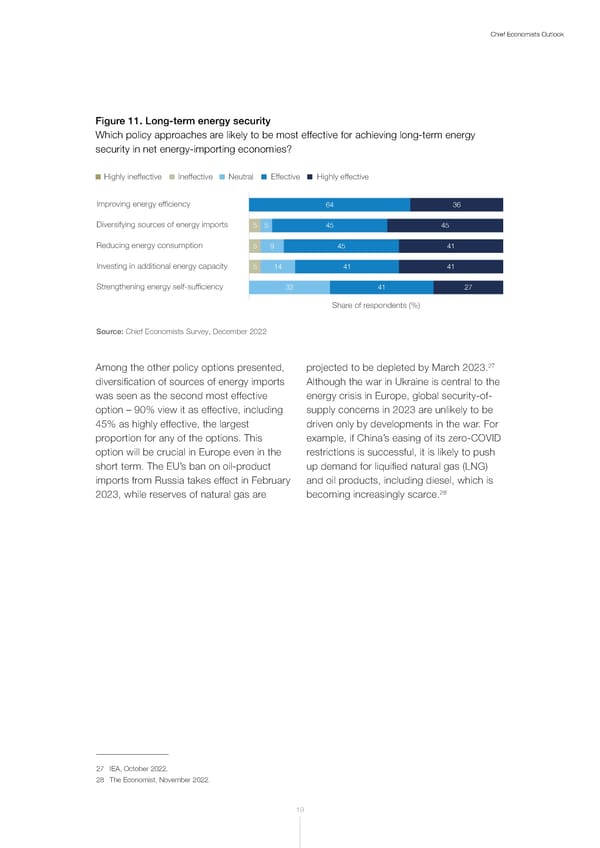19 Chief Economists Outlook Figure 11. Long-term energy security Which policy approaches are likely to be most effective for achieving long-term energy security in net energy-importing economies? Highly ineffective Ineffective Neutral Effective Highly effective Share of respondents (%) Strengthening energy self-sufficiency Investing in additional energy capacity Reducing energy consumption Diversifying sources of energy imports Improving energy efficiency 64 5 5 5 5 32 41 27 9 14 41 41 45 41 45 45 36 Source: Chief Economists Survey, December 2022 Among the other policy options presented, diversification of sources of energy imports was seen as the second most effective option – 90% view it as effective, including 45% as highly effective, the largest proportion for any of the options. This option will be crucial in Europe even in the short term. The EU’s ban on oil-product imports from Russia takes effect in February 2023, while reserves of natural gas are projected to be depleted by March 2023. 27 Although the war in Ukraine is central to the energy crisis in Europe, global security-of- supply concerns in 2023 are unlikely to be driven only by developments in the war. For example, if China’s easing of its zero-COVID restrictions is successful, it is likely to push up demand for liquified natural gas (LNG) and oil products, including diesel, which is becoming increasingly scarce. 28 27 IEA, October 2022. 28 The Economist, November 2022.
 WEF Chief Economists Outlook 2023 Page 18 Page 20
WEF Chief Economists Outlook 2023 Page 18 Page 20